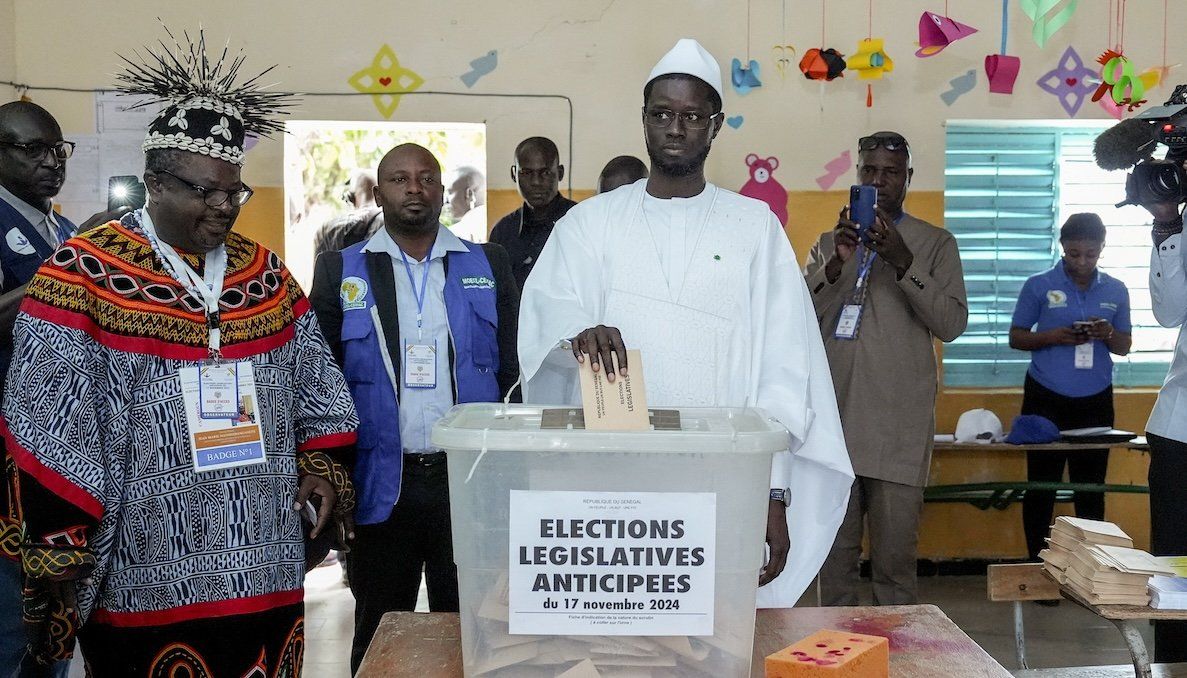Over seven million of Senegal’s 17 million citizens were eligible to cast their ballots Sunday in elections for the country’s 165-seat National Assembly. President
Bassirou Diomaye Faye called the snap vote eight months after taking office, seeking a majority mandate for economic reforms as the country grapples with high inflation and widespread unemployment.
Back in March, Faye secured 54% of the vote in the presidential election, making him Africa’s youngest elected leader at the age of 44. His victory came less than two weeks after being released from prison. Both Faye and his mentor Ousmane Sonko had been jailed onpolitically motivated charges, spurring months of protests in which dozens of people were killed and about 1,000 people were incarcerated.
Faye now faces the Takku Wallu opposition party led by former President Macky Sall, as well as 39 other registered parties and coalitions. Analysts expect Faye’s party, PASTEF, to secure the 83 seats required for a parliamentary majority. Faye and Sonko campaigned on a left-wing pan-African vision, promising to diversify partnerships and reassess hydrocarbon and fishing deals. He will also have to tackle a debt crisis, as a $1.9 billion IMF program is on hold pending a government audit.
Provisional results are expected Monday morning, with a final count to be published later in the week.
